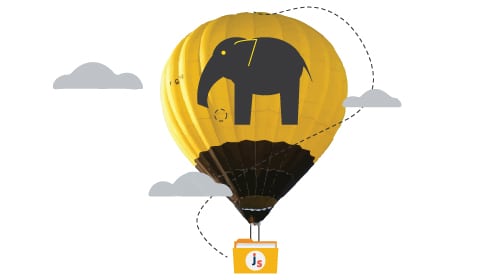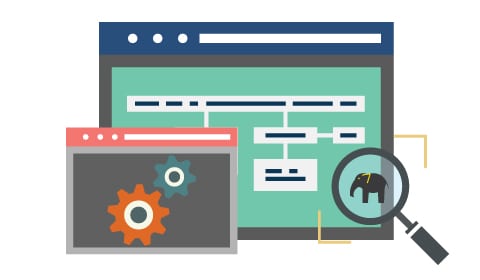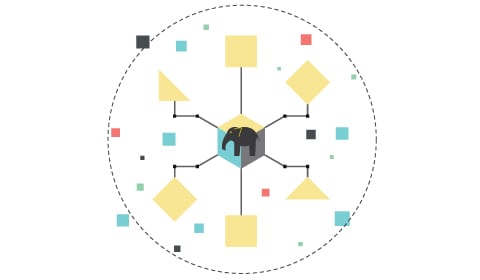Microsoft Azure Data Engineering Training Cou ...
- 15k Enrolled Learners
- Weekend
- Live Class
Most of us know the story of the woodcutter, who went to work for a timber merchant. His salary was based on the number of trees he could cut for the day. On the first day, he could cut 20 trees. Happy with the result, and even more motivated, he tried harder the next day and came back with 30 trees. However, his success was short-lived. After a week, the number of trees he was cutting was dwindling. “I must be losing my strength,” the woodcutter thought. He decided to go and see his boss and apologized for not living up to the expectations. He was taken aback, when his boss asked him,
“When did you last sharpen your axe?”
He replied, “I have been busy cutting more trees for you and I just did not have the time to sharpen my axe.”
Cut to modern world: I am sure many of us can relate to this story to some extent. What is crystal clear is this: the axe — or in today’s context, technology — needs to be upgraded constantly, without which progress is impossible.
Most of the companies today are waking up to the needs of technology across all domains and reaping the benefits. Let’s take the example of book retailers. Earlier, traditional booksellers in stores could easily track which books were popular and which were not, based on the number of those particular books sold. If there was a loyalty program, they could tie some of those purchases to individual customers. That was just it.
But once the focus was on online shopping, there has been a 360 degree turnaround in understanding customers. Online retailers — the biggest example being Amazon — were able to track not only what customers bought, but also their viewing history; how did they navigate; how did the reviews, page layout and promotions influence them. They even came up with algorithms to predict which book a particular customer would love to read next. Booksellers in physical stores just could not have this kind of information.
No prizes for guessing why Amazon pushed several bookstores out of business. It is evident that it tapped in to the need to manage its volumes of customer data that was being overlooked by the traditional booksellers.
This is where big data comes into the picture. The hype surrounding big data is not just hype. We now live in a world that is dominated by big data, whether we accept the fact or not. The amount of data doubling every day across the world is undeniable. Pat Gelsinger, the CEO of VMware, has rightly said, “Data is the new science. Big data holds the answers.” Using that data effectively is the crux of the matter.
Companies like Facebook and Twitter have been efficiently using big data for quite some time now. Today, organizations across all domains whether big MNCs or startups — be it social media or health care or finance or airlines — are embracing the big data wave and are investing big time in it. The domino effect of these upgrades and new initiatives are bringing in a lot of changes in job titles and job roles.
But the big question is: Are professionals ready to upgrade to the latest technology and take up new challenges? Shifting to big data is imperative, as it touches nearly every aspect of our lives, whether we realize it or not.
Technology moves at a very fast pace. And, if a Java professional is still fiddling with Java 1.3 code, he needs to look past and upgrade to the most up-to-date technology. Big data and Hadoop are synonymous. Going by the demand and the growing popularity, Hadoop, an open-source — Java-based programming structure — rules the market today. International Data Corporation predicts that the big data and Hadoop market worldwide will hit the $23.8 billion mark by 2016.

Is it prudent for a Software testing professional to jump the Hadoop bandwagon? The answer, I am sure, will be ‘yes’ for many. A testing professional’s job, which entails ironing out bugs and improving the quality of the finished product, can get monotonous at times. He may feel stuck in the rut after a point doing the same kind of work day in and day out. This is when the need to upgrade his skills to big data and Hadoop can come in handy. His realm of opportunities will also open up.

Even a mainframe professional’s work involves bulk data processing. And, handling volumes of unstructured data can be time consuming besides getting monotonous. Take the case of a person, who is involved in census data processing in mainframe. His job includes monitoring and collecting questionnaires, checking, data entry, storage, tabulation etc. This can get mind boggling, right? The process is not only time consuming, but also expensive. Hadoop being an open-source platform can be the most viable alternative to manage volumes of data for him. With Hadoop he will also have better career opportunities that are increasing by the day.

What about the data warehousing professional and the ETL developer, who handle loads and loads of data? Given the enormous flow of data today, they get so caught up in this data that their work is restricted to just handling the flow of data. But by upgrading to Hadoop, these professionals can effortlessly handle volumes of data. Also, how can they forget the big opportunities in the data management sector?

There is also the Business Intelligence professional whose challenge lies in storing Big Data. For example, in an advertising agency, he will constantly need answers to analytic questions, such as: What drives people to certain content? What’s their profile? How do we draw more people to an area? It is only with the help of Hadoop that he can scale up and deliver good answers frequently.

Whether you are a Java professional or a software testing engineer or business intelligence professional, there is no debating the fact that big data technologies are becoming a common accompaniment. Therefore, you need to look beyond and upgrade to the challenges of big data technologies. Lest, you become like the woodcutter who was so busy felling trees that he forgot to sharpen his axe.
Is your profession/doma
If you also want to learn Big data and make your career in it then I would suggest you must take up the following Big Data Architect Certification.
Got a question for us? Mention them in the comments section and we will get back to you.
Related Posts:
All You Need to Know About Hadoop
 Thank you for registering Join Edureka Meetup community for 100+ Free Webinars each month JOIN MEETUP GROUP
Thank you for registering Join Edureka Meetup community for 100+ Free Webinars each month JOIN MEETUP GROUPedureka.co
I am Oracle DBA with 8 years of experience.What are oppurtunities for me and where do I fit.
Hi Sonal, a lot of professionals from Administration background prefer taking Hadoop Administration course. It is like a natural progression. There is no pre-requisite of any programming language, however exposure to basic Linux fundamental comments will be beneficial. You can check out this link to know more about the course: https://www.edureka.co/hadoop-administration-training-certification You can call us at US: 1800 275 9730 (Toll Free) or India: +91 88808 62004 to discuss in detail. You can also email us at sales@edureka.co
Hi I am a SQL developer and work with Apps support. I am planning to make a move into BIG DATA . Will I have a chance of landing in a good job post course completion.Please help
Hi Bharadwaj, Big Data/Hadoop is the most in-demand technology these days, while most of the big companies Big Data as a part of their root strategy. This is the reason why most IT professionals from various background are taking up Hadoop. Take a look at the job trend for Hadoop. It is pretty obvious that Hadoop skill is in demand.
You can know more about the course here: https://www.edureka.co/big-data-hadoop-training-certification . In case of any clarifications you can call us at S: 1800 275 9730 (Toll Free) or India: +91 88808 62004. You can also email us at
sales@edureka.co
Hi I am AS400 professional. AS400 is similar to Mainframe. I wish to make a shift to Hadoop. Plz guide!!
Hi Sujoy,
here are lot of professional from Mainframe background shifting their base to Hadoop. It is like a natural progression. With mainframe knowledge as the base, your attempt to learn Hadoop will make you more efficient and sound to deal with different and changing technologies. For more information on moving from Mainframe to Hadoop, please refer to the following link: https://www.edureka.co/blog/move-from-mainframe-to-big-data-hadoop/
You can find course information at https://www.edureka.co/big-data-hadoop-training-certification You can call us at US: 1800 275 9730 (Toll Free) or India: +91 88808 62004 to discuss in detail.
Hi, I’m bcom graduate. Want to learn hadoop and big data. Am I eligible to learn hadoop and can I get the job after learning the hadoop. Please suggest me?
Hi Shali, Yes you are eligible for learning Hadoop. The only prerequisite for learning Hadoop is knowledge in core Java. Hadoop is a relatively new in the market, so recruiters are looking for professionals with hands-on experience. This experience can be obtained by doing real-time projects. In case you are joining Edureka, towards the end of the course, you will be working on a project where you be expected to perform Big Data Analytics using Map Reduce, Pig, Hive & HBase. You will get practical exposure, which will be a massive advantage to you.
You can check out this link for more info about the course: https://www.edureka.co/big-data-hadoop-training-certification You can also call us at US: 1800 275 9730 (Toll Free) or India: +91 88808 62004 to discuss in detail.
Hi,
My name is Varun. I am software testing engineer in IBM with 4 years of experience. I also have some basic knowledge of java. I just want to know that is hadoop good for me and how can i move to hadoop profile as i don’t have any dedicated experience of hadoop. I have gone through many job portal and searched the jobs related to hadoop and there i found that all companies are looking for hadoop developer at least 2 years of experience. So could please guide me that how to move in hadoop and is hadoop is good for professional like me.
Thanks…. :)
Hi Varun, a lot of professionals from various background are switching to Hadoop, as there is a huge demand for it. The only prerequisite for learning Hadoop is knowledge in core Java. Since Hadoop is a relatively new in the market, recruiters are looking for professionals with hands-on experience. This experience can be obtained by doing real-time projects. In case you are joining Edureka, towards the end of the course, you will be working on a project where you be expected to perform Big Data Analytics using Map Reduce, Pig, Hive & HBase. You will get practical exposure about Data Loading techniques in Hadoop using Flume and SQOOP. This hands-on experience will give you an added advantage and sets you apart from others. You can check out this link for more info about the course: https://www.edureka.co/big-data-hadoop-training-certification
You can also call us at US: 1800 275 9730 (Toll Free) or India: +91 88808 62004 to discuss in detail.
Hi , i am a.Net developer having total work exp. around 7.5 yrs., how learning hadoop and big data will help me in getting good job opportunity in market.
Hi Ankur , professionals from various backgrounds like Data warehousing, Mainframe, Testing and Unix admin, including . Net background are moving to Hadoop as there is so much scope in it. The requirement for Hadoop skilled professionals is huge and any professionals irrespective of their current field can ace with Hadoop skills. You can call us at US: 1800 275 9730 (Toll Free) or India: +91 88808 62004 to discuss in detail. Please go through the course information here: https://www.edureka.co/big-data-hadoop-training-certification
I am Oracle Pl/Sql Developer with 6 yrs of experience. Is this corse still useful for me?
Hi Reetu, the only pre-requisite for learning Hadoop is knowledge in core Java. We provide a complimentary course ‘Comprehensive Java’ along with this ‘Big Data & Hadoop’ course. This will help you to brush up your Java skills, which is needed to write Map Reduce programs.
For more information about the course please refer to the following link: https://www.edureka.co/big-data-hadoop-training-certification You can also call us at US: 1800 275 9730 (Toll Free) or India: +91 88808 62004 to discuss in detail.
Hi
I am a c pro*c and c++ unix professional with 9 years exp.
Is big data suited for my next career move..
Thanks
Hi Kanad, the only pre-requisite for learning Hadoop is knowledge in core Java. We provide a complimentary course ‘Comprehensive Java’ along with this ‘Big Data & Hadoop’ course. This will help you to brush up your Java skills, which is needed to write Map Reduce programs.
For more information about the course please refer to the following link: https://www.edureka.co/big-data-hadoop-training-certification You can also call us at US: 1800 275 9730 (Toll Free) or India: +91 88808 62004 to discuss in detail.
Hi i am working as Oracle Database Developer from last 5.5 years.I want to move to Big Data space but i don’t have any past experience or knowledge in Java.How can i move to Big Data in such a way that my experience of PL/SQL development is also useful while i upgrading to new technology ?
Hi, i have done my B.TECH in Information technology and working as a developer for 7 months and i’m a fresher and want to start my career in Big data ? I just want to know whether we need to atleat 2-3 experience to learn big data & hadoop
Hi Sunil, even people in their final years of education are considering Hadoop. The reason being, a lot of companies are looking for freshers in Big Data space. Being a fresher you can add value to your resume by doing projects and having hands-on experience. This will make stand apart from other freshers. The Edureka certification is provided only after successful completion of project and assignments. These project and assignments gives you a hands-on experience and mentioning them in your resume will definitely get you noticed by the recruiters. Please visit this link for more information: https://www.edureka.co/big-data-hadoop-training-certification You can call us at US: 1800 275 9730 (Toll Free) or India: +91 88808 62004 to discuss in detail.